Nature Worship For the Rotted World
Reconnecting with nature today means engaging with the parts that humans have fundamentally changed or destroyed.
I was inspired to write this essay after trekking through the Himalayas in Nepal. As an experiment, I asked the hills what I should write, and it almost felt like the landscape itself dropped this essay into my hands.
This will be the first in a series of essays about ecology and spirituality in the time of the climate crisis. Thank you so much for reading along, and you can subscribe or upgrade to a paid subscription for less than $5/month below:
*
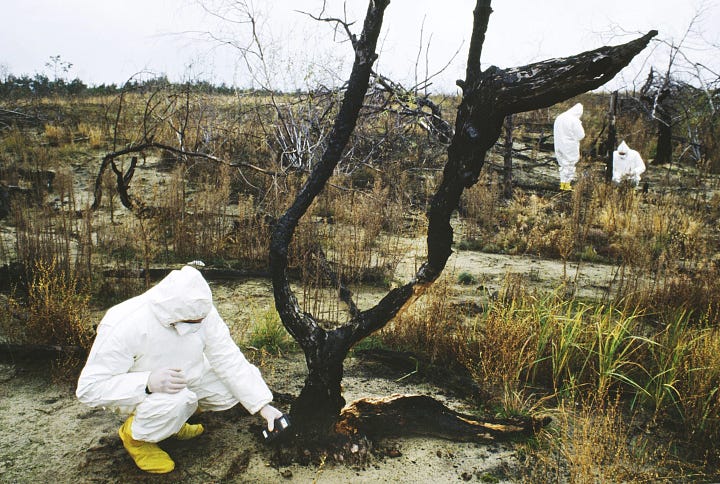
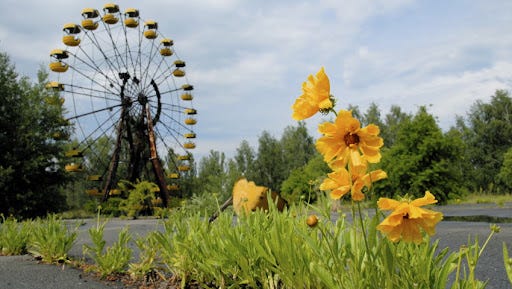
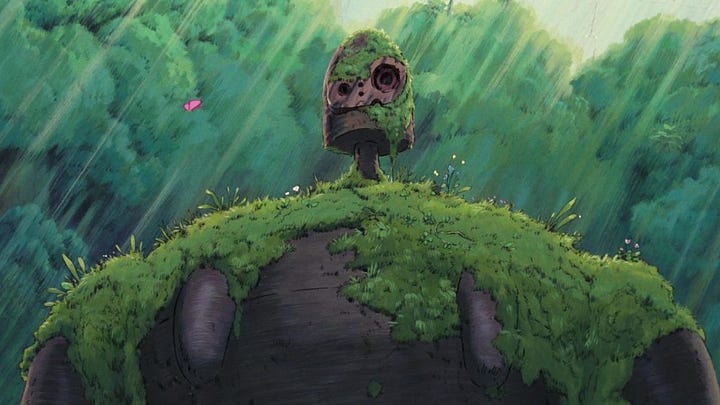
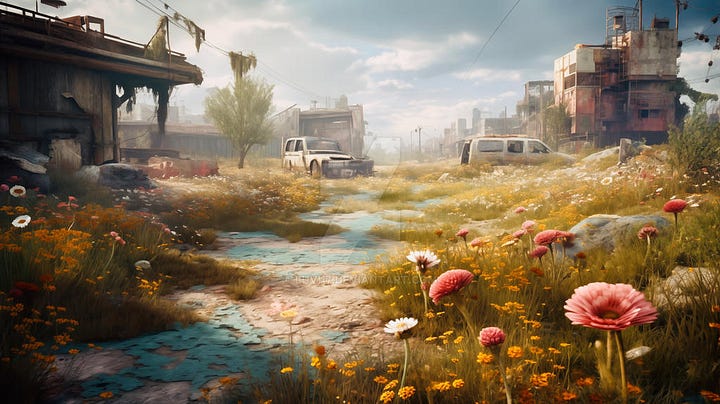
Everywhere I look, I see signs of decay.
I feel it in my own body, too. My head hurts and my feet ache. I reach for my phone, I put it down again. I lie awake all night. I am in ecstasy. I despair.
The world aches. Trash lines the streets. Smog fills the air. Everywhere there is industry. Everywhere there are empty shopping malls, moldy bathroom walls, airless offices, and countless piles of useless waste.
As the climate crisis progresses there will be more and more abandoned towns, more junk, more waste, more blood, and more spilled oil. More nuclear waste and ravaged rivers and pandemic-decimated cities, more mutated creatures and infected highways and microplastic-filled wounds.
We are not separate from nature, but we are also not separate from the industrialized and burning world, which has been so profoundly changed by the illness humans have inflicted upon it. The neurons in our bodies reflect the shapes of the galaxies and the lattice patterns of tree roots, yes. But our bitten fingers and our chemical-burned skin and our starved and exhausted forms and slumped backs and perpetual fatigue also reflect the decay and abuse and ever-changing, ever-rotting and ever-rising state of the earth.
We are forests, but we are also cities and collapsed buildings. We are clear alpine lakes and we are also nuclear wastelands.
Nature is not a pristine, angelic force. Nature swallows everything, takes it inside it and converts it to something new.
In order to truly learn from nature, and in order to understand that we are nature, we must not fall prey to the illusion that we are perfect, untouched landscapes, or that we should be trying to return the world to some flower-filled, forested paradise.
No — we are ruins and we are spring rain.
We are the prey and the predator. We are the wildfires that scorch the hills in order to clear shape for new land. We are the tides and the whirlpools, the rich reefs and the airless, luminous deeps.
We are abandoned theme parks, and we are burning cities, and we are skyscrapers, and we are redwood trees. We are the tiny mice and the dust mites and the ants and the butterflies and the creeping vines and the wildflowers and the plastic bottles that lie among them.
In order to acclimate to and adequately respond to the climate crisis, we must learn from how nature has always responded to destruction, and we must incorporate the strategies it uses to deal with humans into our own approach to dealing with our own species and, on a more internal level, our own emotions and sufferings.
We must learn to live with, and to grow with, our destructive tendencies and our destruction. We must become like the vines growing out of collapsed buildings. We must become the sweet rain falling and the oil and blood-marred fields beneath it.
If the body is a temple, then it is also the dirt at the bottom of the temple and the dead flies on the windows and the smoke from the nearby cities swirling around the roof. Perfection is an illusion and a fallacy, and purity is a distraction and a mechanism of control. We and the burning world ooze and weep, fail and flounder, rot and remake ourselves in tandem. We would do well to accept and learn from this part of our natures, and of nature, rather than rejecting it and idealizing some ultimate natural wonderland as the goal or the ideal.
The truth is that we will never return to how the earth was before humans changed it. We cannot erase our own natures. We cannot change the shape of our own design.
And what we are is corrupted. And what we are is greedy and despairing.
And natural. And wild. And beautiful.
We can try to become pure and enlightened and free from desire, but most of us will not attain that goal. The rest of us must accept that we are not perfect and we are not pure and we are not angels, at least in this lifetime.
We will also never “solve” climate change and reach a state of mellow stasis and harmony with all humans and the earth.
We will not suddenly become happy if we only take these steps or follow that gospel. We will not end violence, no matter how much we wish we could. There will always be death.
Believing that we need to solve the climate crisis or fix everything or save everyone only creates more problems. This kind of purity culture has animated so much of leftist politics, which fixates on policing language and all-or-nothing mentalities rather than embracing our shared humanity and creating a better world for everyone.
And this kind of philosophy also animates the capitalist ideal of progress itself, which says that if we only earn enough, we’ll be happy and safe. And it animates the ideal of a communist utopia, which says that if we only achieve the long-awaited bloody revolution, all will suddenly, magically, be well.
It is not a bad thing to hope for vast and radical changes. But the problem starts when we become obsessed with the idea that we, or the world needs changing at any cost, and that it can only be one way, and until then life is not worthy of love or peace. Then life becomes intolerable. It exists only in the future. Then we die while we are still alive.
Even this is part of the dance. Even this is natural. Even this is holy and born out of love.
There has always been suffering. Extermination, genocide, death. There always will be. Just as there will always be love and hope, even in the center of the worst times.
This is the garden. The garden is here and now.
The garden is the rot and the waste. The garden is the bloom and the explosion. This is the garden — this, this, this, all of this. This is what Buddhism teaches us. And Buddhism, as well as pagan and animistic and Indigenous faiths, all remind us that the garden involves decay and death and rebirth.
The garden is also the turning-away, the mind-control, the addiction. And the garden is also the spirit that moves us to change our path and that inspires us to try to create a better world.
The garden is the balancing act between acceptance and resistance. The garden involves intimacy with our own despair, even while knowing it is temporary.
So we must bloody our hands. We must walk ourselves through our own labyrinths. We must pick out our own thorns. We must staunch our loved ones’ wounds and dirty ourselves. We must be terrified, and go out into the world anyway.
We must see that we all contain the poison and the medicine. We must dig in the earth. We must pull the toxins out of our own bodies. We must become like the black fungi of Chernobyl that thrive on radiation, converting it into sustenance.
We must learn to thrive in and on ruin.
Perhaps beyond it all there is a perfect, interconnected world where all things are one — but that means the oneness includes the mass murderers, and includes the murdered children.
All is alchemized in the true forest of being. All is part of the cycle, and all is one. We are the worst and best of everything. Nature is cruel and wondrous, and so is humanity, in all of our floundering and all of our maliciousness and greed and blindness.
Time is nonlinear, filled with kinks and roads that go nowhere. Love is pain, and life is suffering. The filthy city is as holy as the untouched mountain pass.
To worship nature and the earth is to worship its power, and its resilience, and its randomness, and its tempestuousness and cruelty as well as its kindness and mercy.
There is nowhere else. We will not suddenly “solve” the climate crisis. We can try. We can do our part one step at a time. We can become a part of the great dance. We must fight. We can try to change others. We can try to spread the word, as people always have and always will.
But entropy is the nature of things. Rot and death are the nature of things. As above, so below — as beyond, so within — as it is, so it shall be.
Nature is not pristine and never has been, and neither are we. There is no garden except for the here-and-now.
Our nature worship of the modern era should include the barbed wire. Should include the ghost ships. Should include the mold and the leech and the butterfly and the heavy metal.
We should honor the new gods of gasoline and technology. We should take our hats off and walk quietly as we pass the nuclear reactor.
We should accept that we have permanently changed the world, just as the world permanently changes us with every breath we take — as each particle of air embeds itself into our bodies, a messenger from a far-off time and place, a fragment of the ancient and the far-future bound up in one inhale.
There will not come a time when everything changes and we are saved. I will not suddenly become happy. I will not suddenly be able to sleep at night. I could, possibly, become happier, and better at sleeping — but I cannot wait for that moment. I cannot discount my existence right now as unholy. Because this is what there is. This, this burning world, this is our paradise and our hell, this is our reality, this is the one, this is the place, this is the time.
Look and see. Come, taste the wildfire smoke on the sweet spring breeze, see how it all twines together — life and death, weeds growing out of concrete, the in and out of breath and tide and moon and sun.
Come, don’t hide away until everything is fixed. You will hide forever in the cave when out here the sun is shining.
Come out and do not look away. Only then will you finally see.
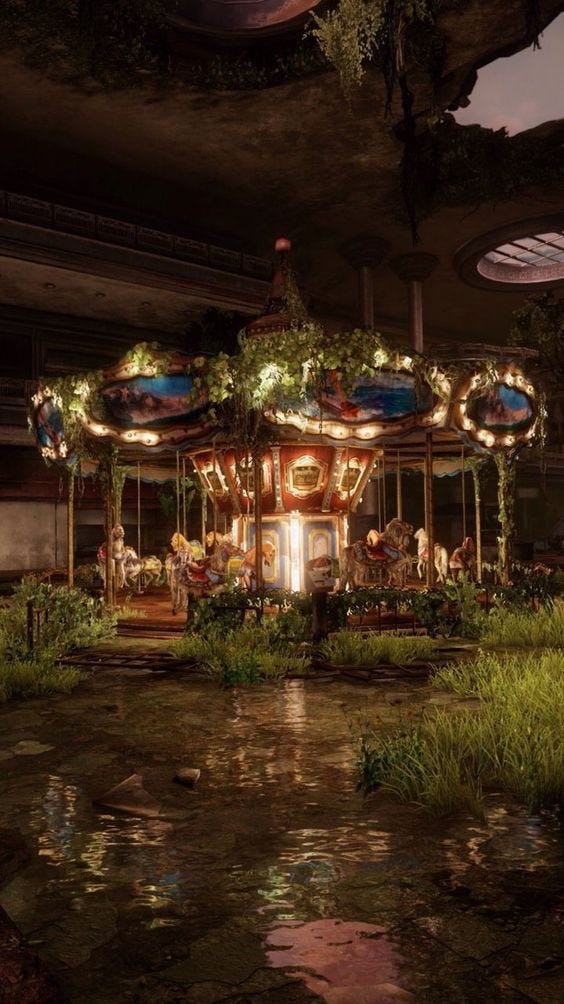
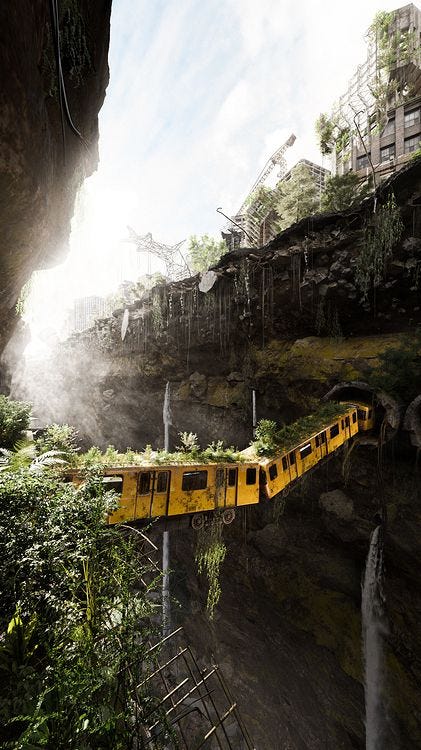
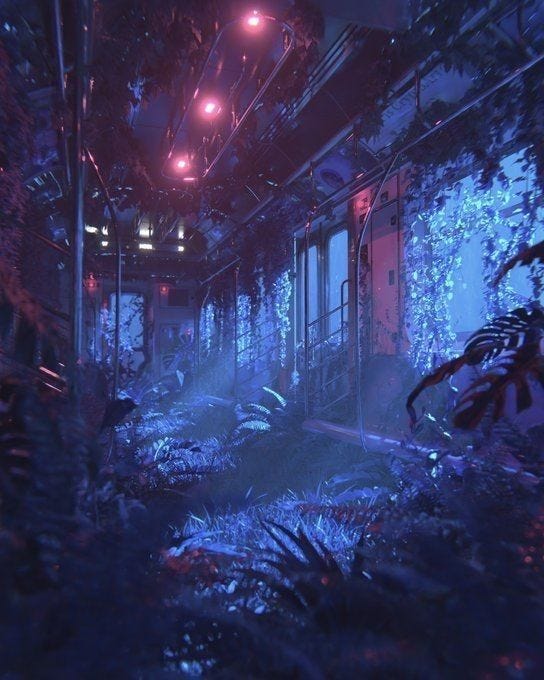
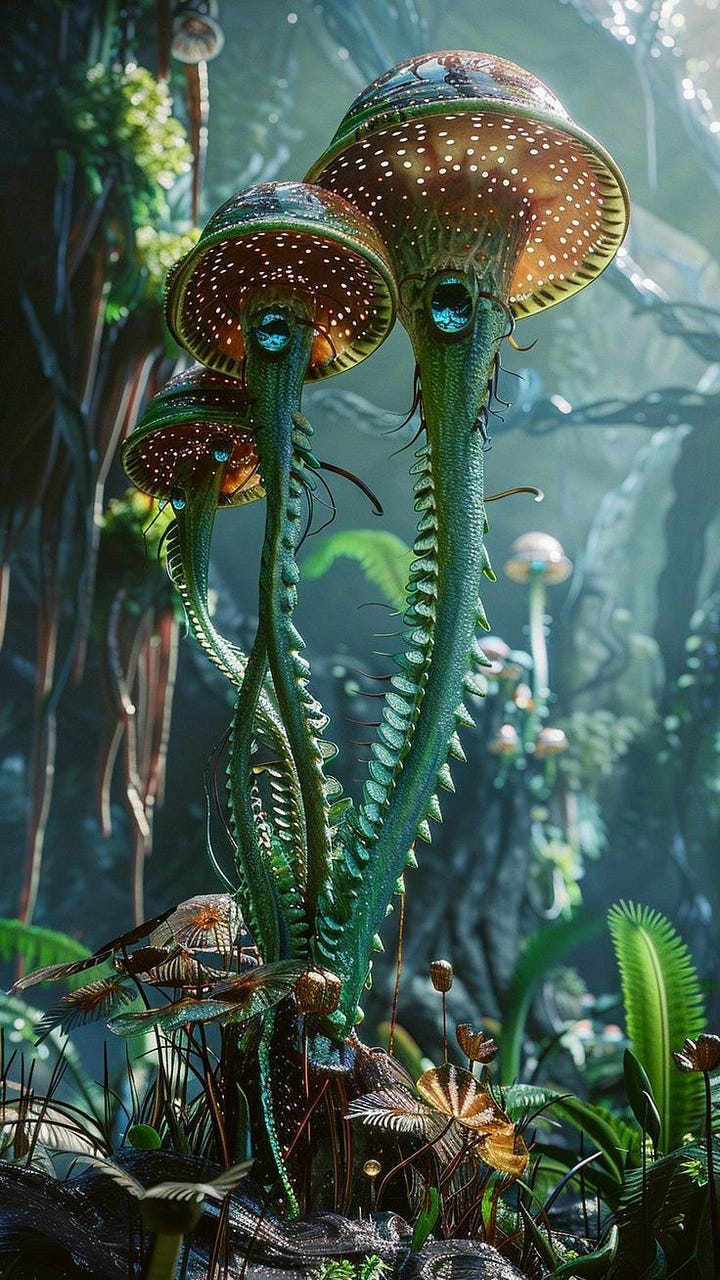

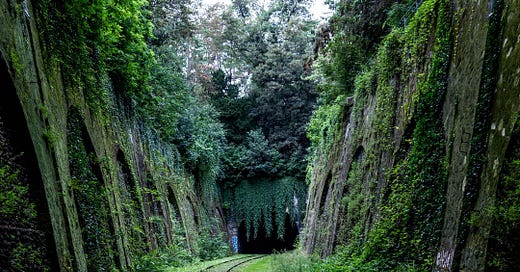


This was an intriguing piece. There's something in me that resists a part of this and I need to sit with that and see what comes up.
Beautiful work. Have you read Martin Shaw’s writing on climate change and myth? He has a great piece in Emergence magazine, “Navigating The Mysteries.” https://emergencemagazine.org/essay/navigating-the-mysteries/